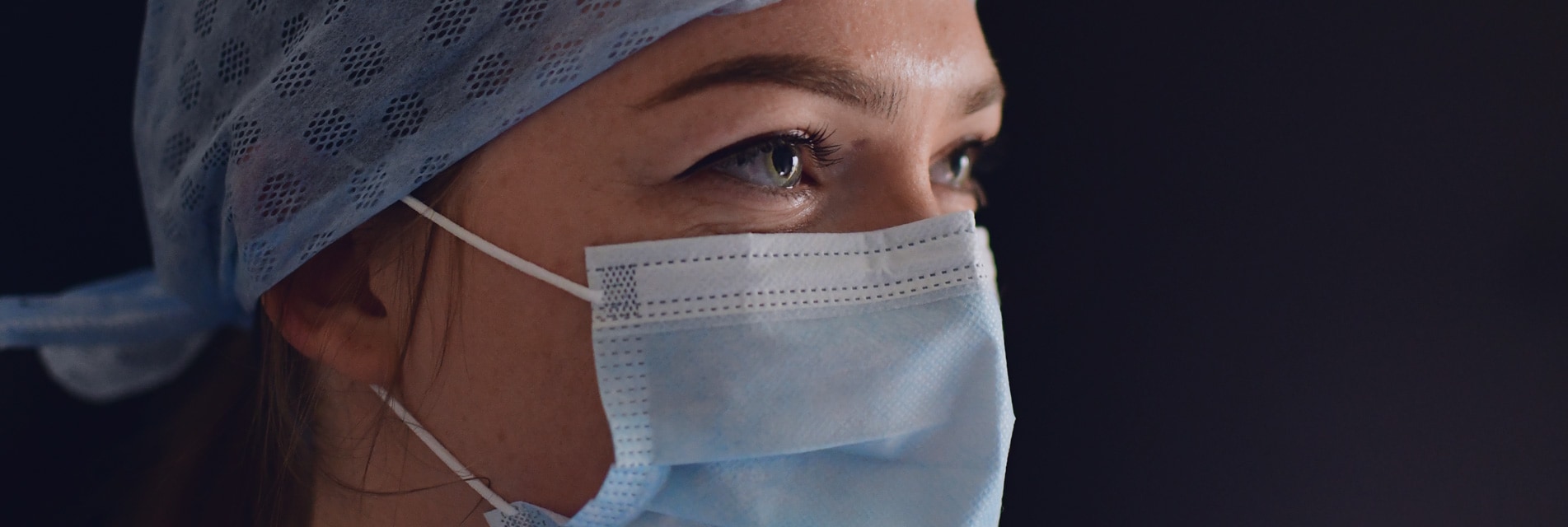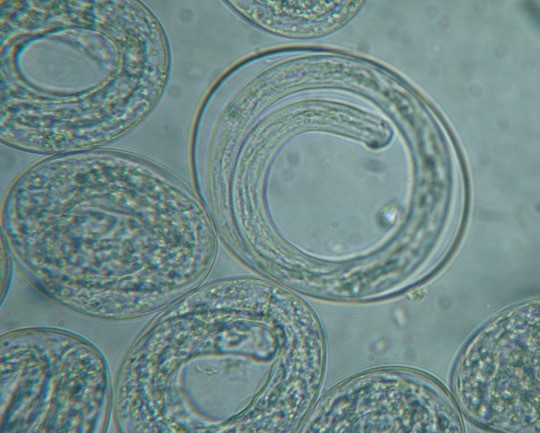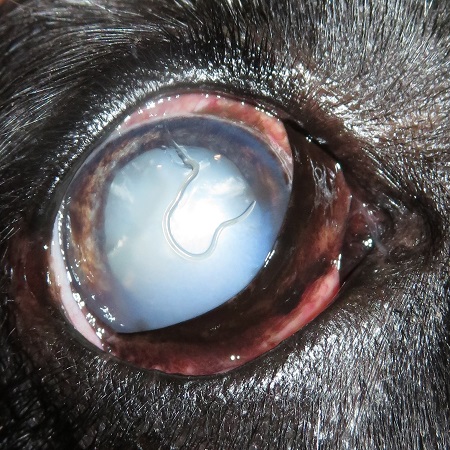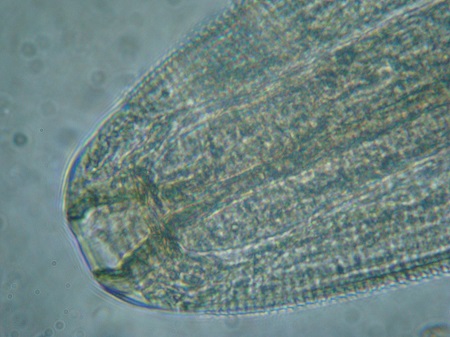An exotic case of the contagious eye worm infection Thelazia callipaeda has been discovered in the UK by a leading veterinary ophthalmologist when examining a rescue dog from the Balkans.
|
|
Chris Dixon, clinical director here at Veterinary Vision in Penrith, Cumbria, had previously warned of the dangers of the communicable infection reaching Britain when he co-authored a 2017 paper with Dr John McGarry, from Liverpool University. Now he’s raised the alarm again after identifying a case in a rescued Labrador which had been brought back to Britain from Serbia. |
|
Chris said: “Bertie’s new owner brought him to us at Veterinary Vision because he was blind after developing a cataract in both eyes prior to his rescue. “During his assessment a worm wriggled across the surface of his right eye which we later confirmed as a female Thelazia callipaeda, which was carrying a large number of infectious larvae. “This was immediately of concern as the importation of this parasitic worm into the UK poses a significant risk, as it can infect multiple species of animals and is also transmissible to humans. “Furthermore, the main vector for Thelazia callipaeda in Europe, male variegated fruit flies are present in the UK so if introduced from abroad there is potential for Thelazia callipaeda to become an established endemic disease across the country.” |
|
|
|
Chris said he was concerned this latest case may be the first of many as there’s growing evidence the parasite, which is also known as Oriental Eye Worm because of its prevalence in the Far East, is now spreading into Europe. He added: “This is known to be an emerging problem in Europe with particular prevalence in the Balkan regions, so we need to be aware of the threat of it spreading people and animals in the UK. “In 2017, I co-authored a paper in the Veterinary Record, with parasitologist Dr John McGarry from Liverpool University, highlighting the risk of eye worm infestation in the UK and this case is certainly a reminder of the dangers. “The risk of transmission from a case like this into other domestic animals, the UK’s wider wildlife reservoir and even to humans is extremely high and this is certainly one parasite we could all do without.” |





LATEST NEWS & UPDATES